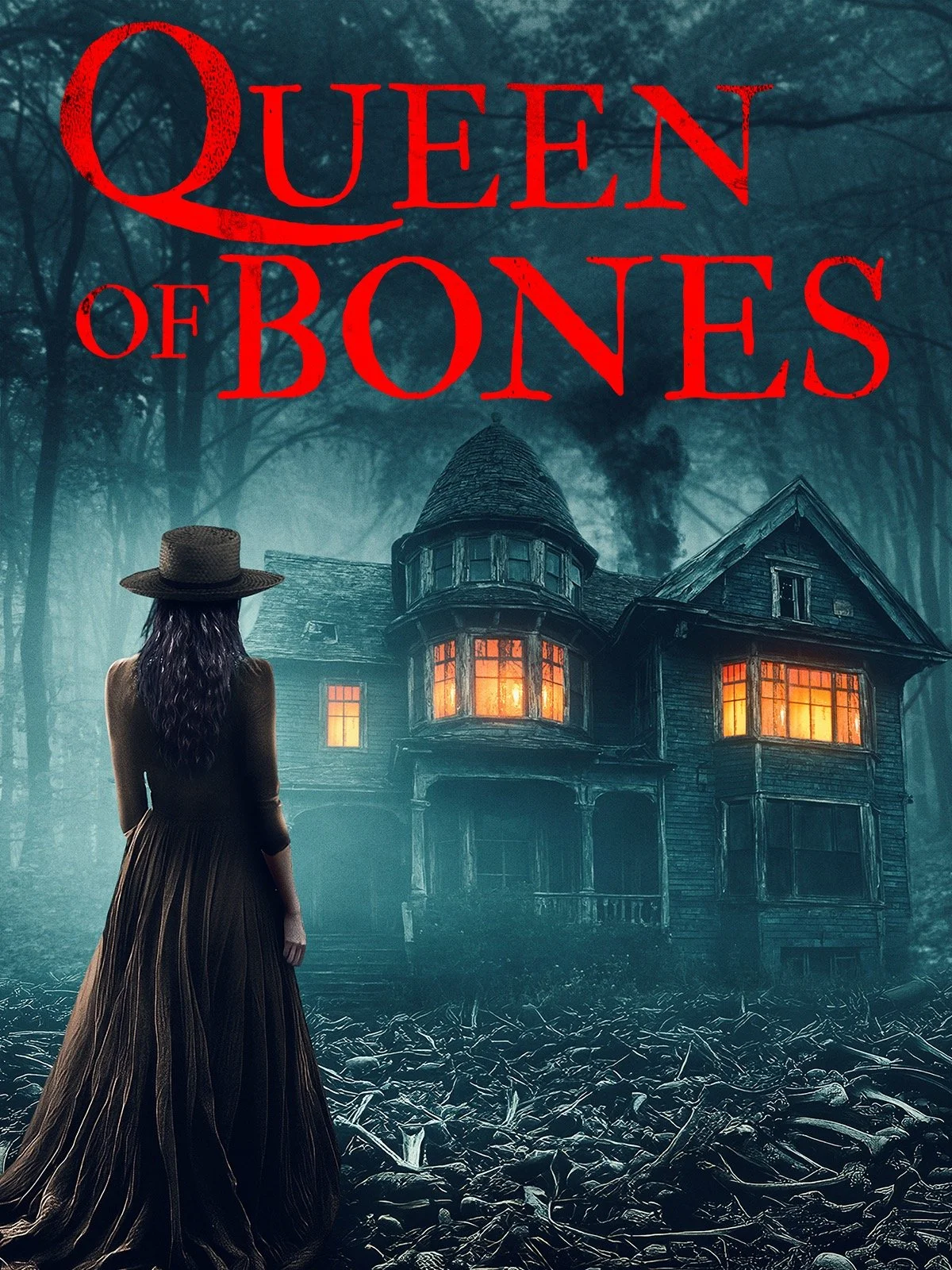Queen of Bones (2024) - Movie Review
What if I told you there was a movie that was both intriguing and absolutely bland?
What if I also told you the film was a pale attempt to mimic better films that don’t have the testicular/labial fortitude to take any chances to make it unique?
Where’d you go?
Let’s discuss.
Queen of Bones is a period horror/drama brought to us by director Robert Budreau and writer Michael Burgner. Neither has a huge amount of credits in their roles. Budreau has mainly produced films, with a handful of long-form directing gigs, most notably 2015’s Born to Be Blue. Burgner, on the other hand, doesn’t have much of a CV outside of this film. None of that really matters, but their obvious lack of experience in the horror genre does.
The film focuses on twins Sam and Lily as they come of age in rural Oregon during the Great Depression. Their father is religious to the extreme and raises them under an iron fist. He’s isolated his family in their home in the deep woods, with their only visitors being the woman who owns the general store and her albino son when they deliver their monthly orders. They never met their mother, having always been told that she died during childbirth. But when a trunk arrives from their grandparents’ home, filled with their mother’s belongings, they begin to question their father’s narrative. Especially when they find their mother’s journals hinting at a darker story of witchcraft, adultery, and murder. Together, they attempt to piece the puzzle of their family history using their wits, skills, and even a little magic. The twins will stop at nothing to get the answers they seek, and their father will cross any line to keep the facade of his saintly, Christian narrative in place. Will the light of the truth be revealed, or will it be snuffed out by the hypocritical cloche of the 1930s Calvinism?
This film is a poor attempt to meld John Steinbeck’s The Grapes of Wrath and Robert Eggers’ 2015 masterpiece, The VVitch.
The film fails at both parts, but somehow it’s not all terrible. I must admit that I enjoyed the viewing experience. The film is shot beautifully, showcasing both the majestic scenery of the Oregon wilderness and also capturing the innate creep factor therein. The beginning third of the film is intriguing, and drew my viewing group into the film, but then it absolutely unraveled into a convoluted mess.
It starts with the cast.
When the top-billed actor in the marketing is Jacob Tremblay, it’s obvious the casting director was grasping at straws.
Martin Freeman as an American father, even in the 1930s, is a stretch. Freeman’s English accent is already dicey, but it’s more his conception of parenting that stands out. Freeman is a fantastic actor. I love him in most everything he’s done. However, he plays this role like a British father, cold and detached. While this is how he is written, and with where the story goes, it fits—but the lack of warmth in anything he does at the beginning of the film destroys any surprise or conflict later on. There’s no relationship, affection, or true bond apparent between the children and their parents. Making Freeman’s character the obvious villain from minute one.
The lead of the film is Lily, played by Julia Butters, who makes a fine effort, but she either lacked direction or doesn’t yet have the chops to carry a film. She manages three or four facial expressions, which she cycled through apparently at random. While Tremblay plays her brother, providing little to no emotion, and makes you think the actor would rather be anywhere else.
The worst offender however, which every person watching in our watch party pointed out, was Kyle Breitkopf, who delivers his lines with neither inflection, timing, or emotion. For a child actor of his experience, which is surprisingly prolific, I wouldn’t have expected such a wooden performance. It’s so bad that any scene he’s in feels like the film cut, and we’re watching a high school drama program read-through. If I were his agent, I’d have this scrubbed from his CV.
There are no surprises worth waiting for.
The film does have intriguing lore, whispers of urban legend, and hints of sorcery. However, we never learn enough of the story in the first half of the film to justify waiting for all the stories and hints to be spoiled by the lackluster reveal and conclusion. The film’s poster and marketing promise a dark, witchy experience with an ominous shadow of a witch hovering over the family. None of this is true. The film tries to shoehorn in the idea of a “Queen of Bones,” a horrific figure of the town’s past—but we never actually get the world-building to give the small mentions any gravitas.
The horror elements feel as if they were added in post to sell a boring, unsuccessful historical drama as a horror film to distributors desperate to capitalize on the horror boom.
I can’t recommend this film as either a historical drama or a horror film. It fails to lean into either genre. It walks the fence in the worst possible ways. It feels like an incomplete, non-committal idea, and unlike most online personalities (yes, I know that’s a stretch for describing what I am), I like my audience.
Don’t watch this film.
Your time is worth so much more than what the films would provide you in enjoyment.
If you do decide you want to be disappointed, it’s streaming on Prime Video as of this writing.

